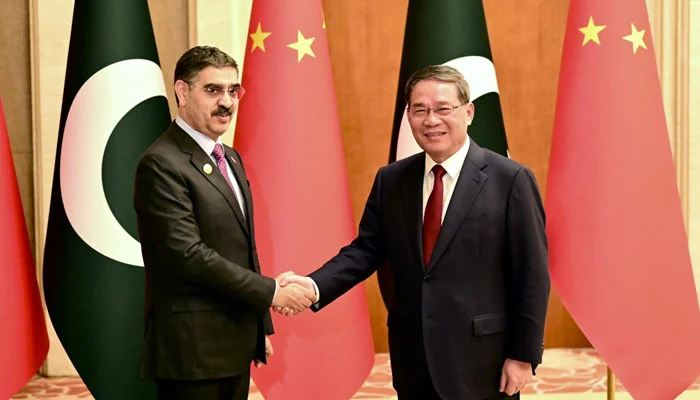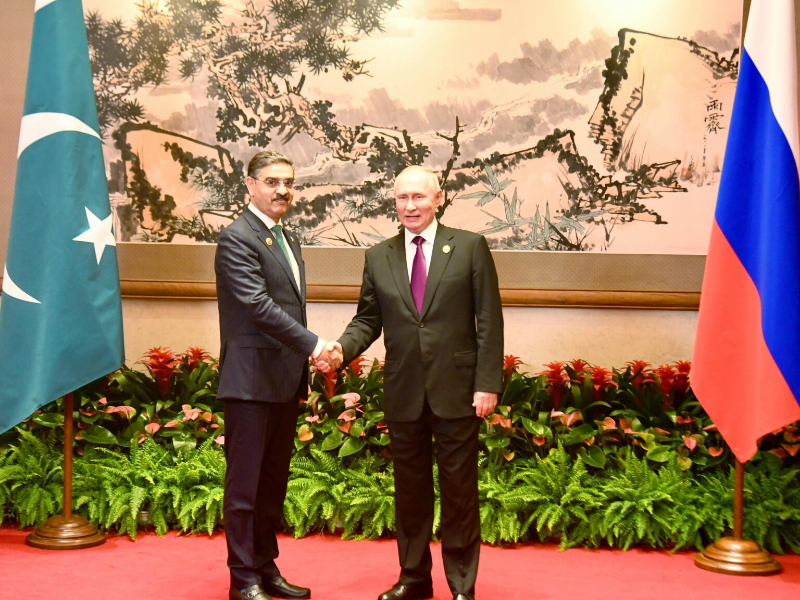In a significant development, Pakistan and China have further solidified their longstanding and strong bilateral relationship by signing multiple Memorandums of Understanding (MoUs) and agreements encompassing various sectors of cooperation. These agreements were formalized at a ceremony held in Beijing on the sidelines of the Third Belt and Road Forum (BRF) and were witnessed by Caretaker Prime Minister Anwaar-ul-Haq Kakar and Chinese Premier Li Qiang.
The MoUs and agreements span a wide array of sectors, including commerce, communication, transport, food security, health, and more, reflecting the depth and breadth of the collaboration between the two nations.
Both countries have expressed their commitment to fortify high-level dialogue and engagement. They aim to deepen their political, economic, educational, scientific and technological, cultural, and people-to-people relations, reaffirming the enduring friendship between Pakistan and China.
During the ceremony, PM Kakar extended his congratulations to the Chinese leadership for the successful organization of the BRF. He highlighted the importance of the Belt and Road Initiative (BRI), terming it a project of immense significance for the world in terms of connectivity and shared prosperity.
One of the key areas of discussion between the two leaders was the China-Pakistan Economic Corridor (CPEC). PM Kakar emphasized the pivotal role of CPEC in Pakistan’s economy and expressed satisfaction over its expansion into new areas of development. These areas include industrial development, livelihood projects, ICT, mining and minerals exploration, and agriculture. He expressed confidence that Chinese investment in Special Economic Zones (SEZs) will contribute to diversifying Pakistan’s export basket and expanding its industrial base.
Premier Li, in turn, acknowledged the steady growth of bilateral cooperation and noted the positive momentum of CPEC projects. He expressed hope that leadership consensus would further bolster trade and economic relations between the two nations.
The collaboration between Pakistan and China extends to various other fields, including MLI (Mutual Legal Assistance), connectivity, research, media exchanges, space cooperation, urban sustainable development, capacity building, mineral development, industrial cooperation, climate change, and vaccine development. These diverse areas of cooperation highlight the comprehensive nature of the partnership between the two countries.
The signing of these MoUs and agreements underscores the commitment of Pakistan and China to strengthen their multifaceted relationship, with a focus on promoting shared development and prosperity, not only for their own nations but for the broader international community.
















